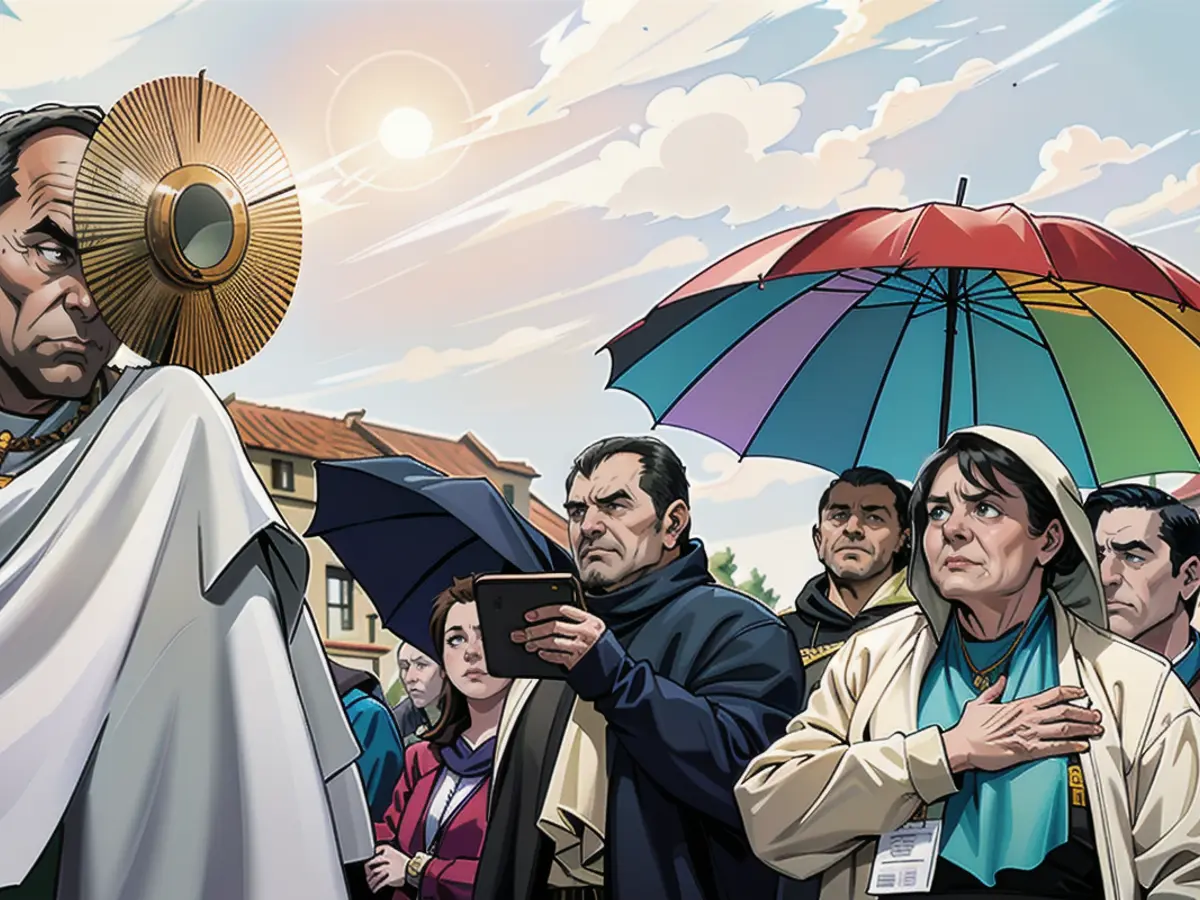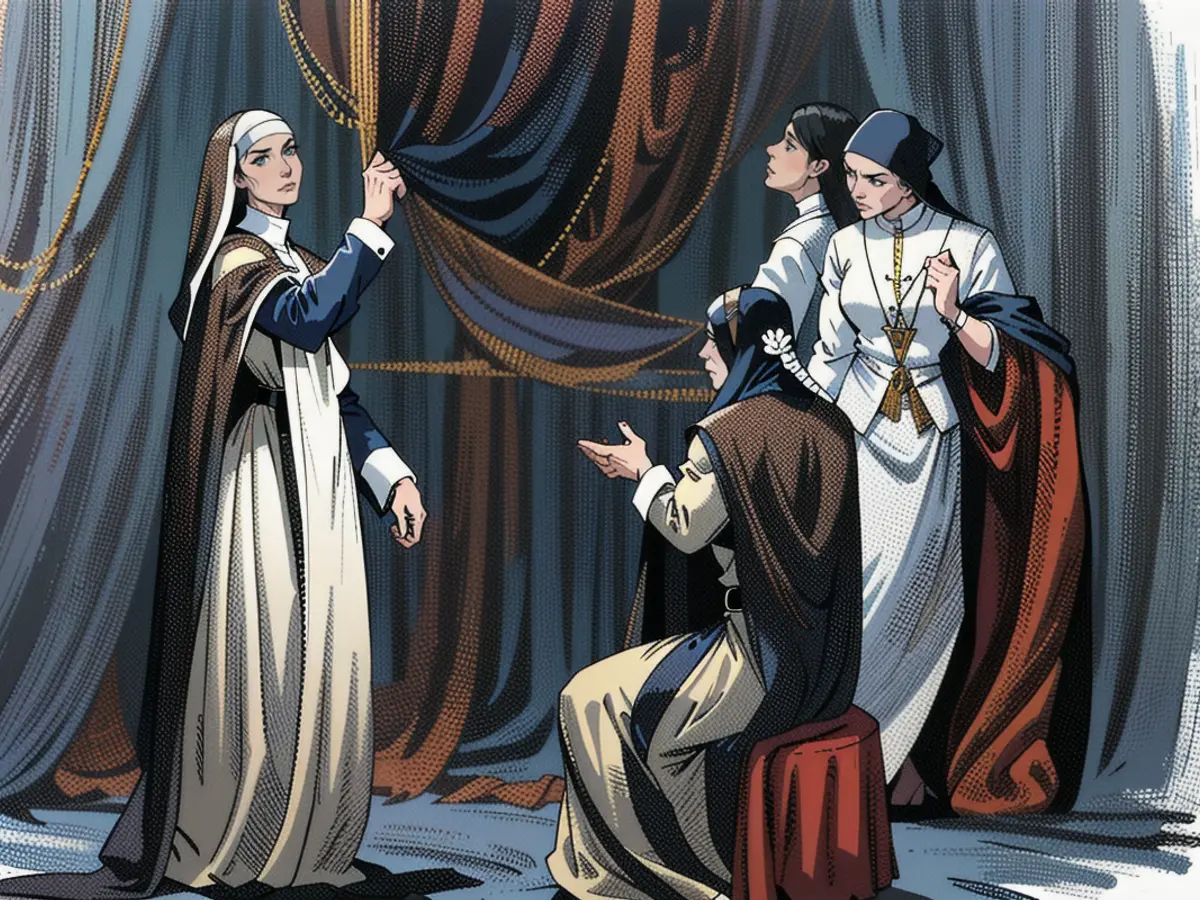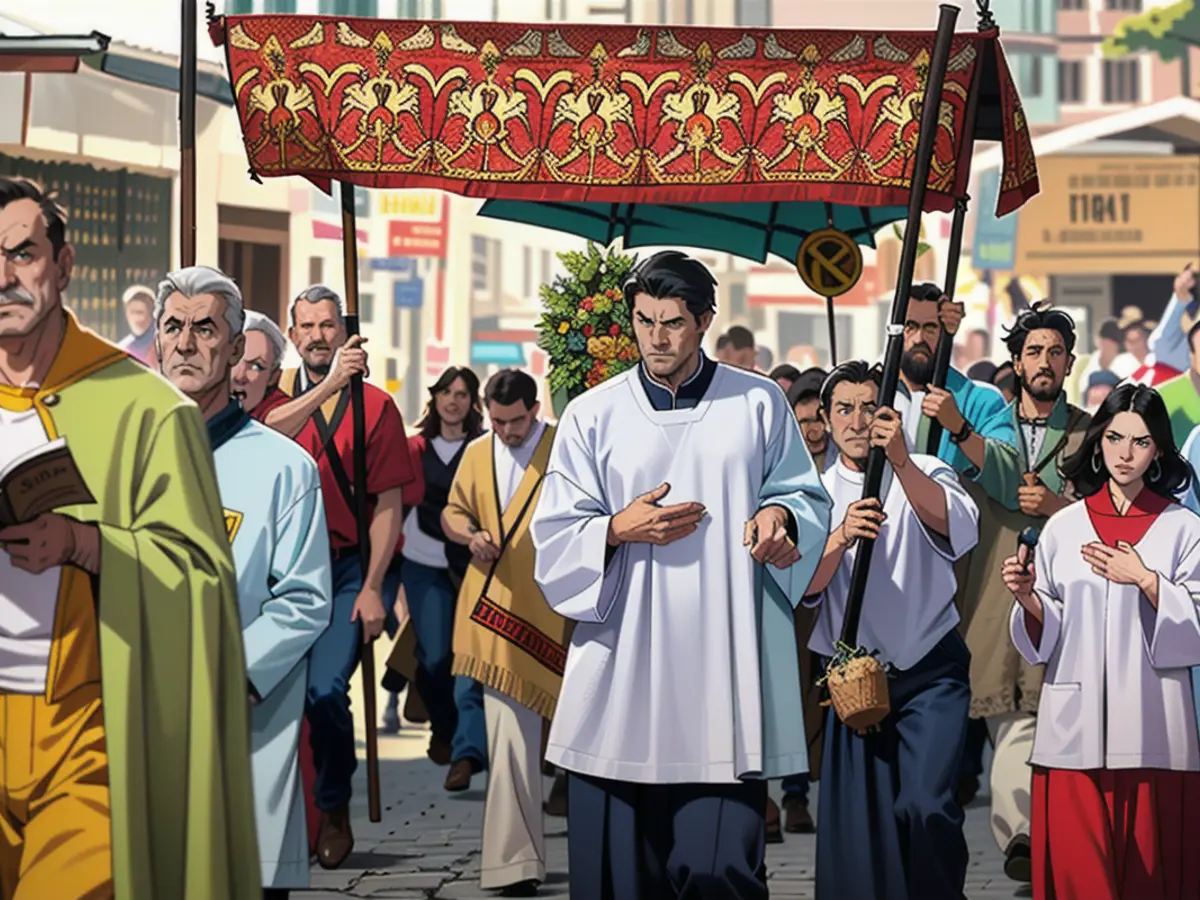The mystery behind Corpus Christi. - Due to Juliana of Liège, today is a day off for you.
Unlike many other Christian celebrations and feast days, Corpus Christi didn't emerge during the early church days but rather during the Middle Ages. It was stimulated by Sister Juliana of Liège in the 13th century, an individual only known to scholars of church history now.
From an Orphan to a Nun
Born in 1191 or 1292, Juliana hailed from the region around Liège (modern-day Belgium). At just five years old, she became an orphan and joined a convent. She then became a nun and, at the age of 30, in 1222, she became the leader of the convent.
Known as a strict sister, she was expelled from the convent twice. Around 1248, she swapped from the Augustinian nuns to the Cistercians, a religious order known for their diligent work and rigorous prayer. She passed away in 1258 at the age of 66, which was quite old for that time.

The 16-Year-Old's Vision Translated into the Feast of Corpus Christi
Juliana gained recognition for her visions, which culminated in the Feast of Corpus Christi. In 1208, when she was about 16, she dreamt of a moon with a dark spot. She believed this symbolized the absence of a church festival dedicated to the Blessed Sacrament, also known as the Eucharist.
Twenty years later, she shared her revelation with three fellow nuns and a hermit. These individuals inspired her, prompting her to approach a well-known theologian in Liège. This is how Juliana's vision reached the pope.

The pope, who was also from Liège, then established the Feast of Corpus Christi for the whole of the church. It was designed to convey the complex theology underlying the change of bread and wine into the body and blood of Christ to the masses.
The first Corpus Christi celebration took place in 1246.
Why Isn't Corpus Christi a National Holiday?

Following the Reformation, the Feast of Corpus Christi became more extravagant processions - a method for Catholics to distinguish themselves from Protestants and exude their superiority.
In response, Protestants reacted by engaging in provocative actions, such as spreading manure on the fields during Corpus Christi.
This is the reason why Corpus Christi is not a public holiday. It's only observed in states predominantly inhabited by Catholics (Baden-Württemberg, Bavaria, Hesse, North Rhine-Westphalia, Rhineland-Palatinate, Saarland, and sections of Saxony and Thuringia). In more Protestant-influenced states, work has to be done on Thursdays - even for Catholic residents in these areas.

The church had not forgotten Juliana. In 1869, the strict nun from Liège who had established a vital feast day for the Catholic Church was canonized by Pope Pius IX.
Read also:
- Habeck alleges that Israel is breaching international legal norms.
- Conflict in Ukraine: a current overview
- Schalke nears massive changes
- Funkel expresses gratitude and bids farewell, though it seems insufficient.
Source:








